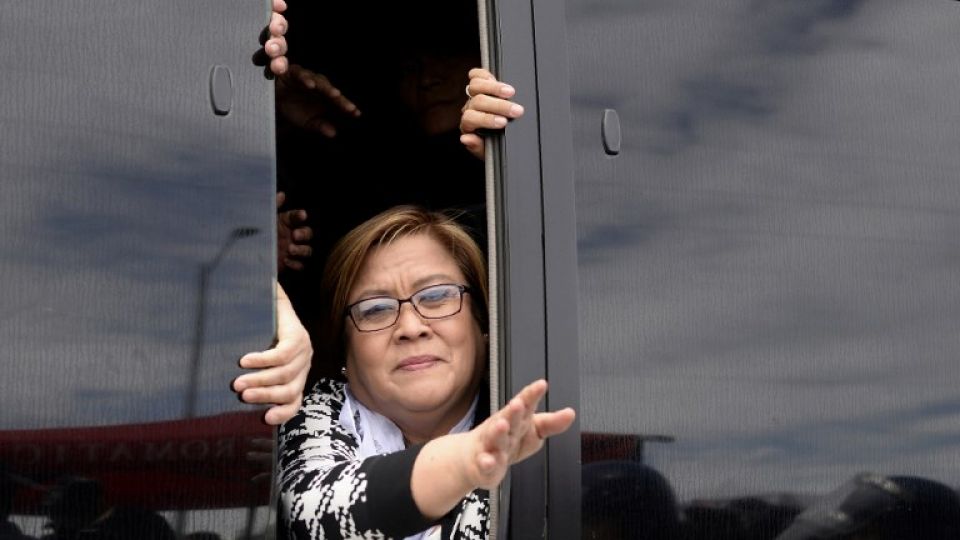April 3, 2018
Leila de Lima, Philippines senator heralded by international observers and prosecuted by her own government for drug charges.
In the eyes of many members of the international community, Senator Leila de Lima is a staunch defender of human rights in the Philippines, a powerful voice for those targeted by President Duterte’s brutal war on drugs, which critics claim disproportionately affects the poor. Within the borders of her of her own country, however, she is battling to clear her name after being arrested and charged for drug-related offenses in 2017.
Last week, Malacañang lashed out at the Inter-Parliamentary Union (IPU) for demanding the release De Lima.
“The IPU’s resolution reiterating its concern to the continued trial and detention of Sen. De Lima exposes its ignorance on the workings of the justice system in the Philippines,” Chief Presidential Legal Counsel Salvador Panelo said in a statement.
It is the latest bump in the road in De Lima’s relatively short stint as a politician. Like her father before her, the senator began her professional life as a lawyer. Young De Lima excelled in school, first earning her AB degree in history and political science and De La Salle University before studying law at San Reda College of Law. She was one of the top performers in the bar exams, finishing eighth in the country.
De Lima went on to work for the Supreme court and various law firms before opening her own firm and establishing herself as one of the country’s best-known election lawyers.
It was then that she made the transition to human rights work, a path that would ultimately thrust her into the international spotlight and see her both praised and vilified.
She became Chairperson of the Philippine Commission on Human Rights in May 2008 June 30, winning a string of prizes for her work.
It was during this time that De Lima took her first swipe at Duterte, then Mayor of the Southern city of Davao, investigating his possible involvement in the activities of the so-called Davao Death Squad thought to be responsible for a string of extra-judicial killings in the city.
In 2010, she was appointed Philippines’ Secretary of the Department of Justice by then-president Benigno S. Aquino III. She has pursued a number of high-profile targets, including former President Gloria Macapagal-Arroyo, in 2011.
De Lima successfully ran for a seat in senate in the 2016 elections – the same elections that saw Duterte claim the Presidency.
Since then, she has become a vocal critic of the strongman, particularly his war on drugs, which has lead to the deaths of thousands in a bloody crackdown that critics have slammed for disproportionately affecting the poor.
Duterte has since fired back, accusing De Lima of involvement in the drug trade when she was Justice Secretary.
The accusations centre on activities at the New Bilibid Prison (NBP), which was linked to the illegal drug trade during a raid by De Lima in 2014. De Lima is accused of involvement in the trade, allegedly accepting money from the imprisoned drug lords to fund her senate campaign.
Her driver Ronnie Dayan, with whom she was accused and later admitted to having a relationship, was said to have received the money on De Lima’s behalf.
The bulk of the people who have testified against De Lima are convicted criminals and no hard evidence of the money allegedly received from the dealers has been found.
Still, De Lima’s name has not been cleared, though she continues to voice her criticisms of Duterte’s regime.


